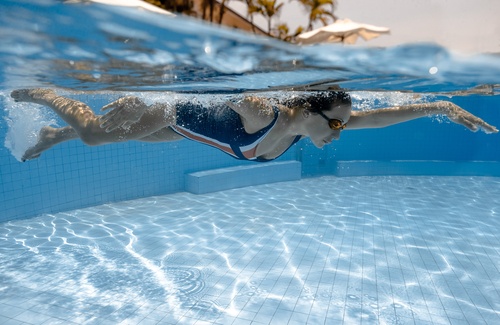Benefits of swimming for the brain
As is well known, water is vital for human survival, but not only its consumption is the cause of all the benefits it brings us. And it is that swimming is a fundamental complement to trigger both physical and mental improvements with Lifeguard Training.
This practice has always been part of our history because away from sports, mastery of water has been the great challenge pursued by ancient civilizations. For example, in Greece and Rome swimming was part of military training and also granted a social distinction among the rest of the population. For the Egyptians, swimming was part of education. In fact, these reflected the importance of knowledge of the therapeutic properties of water in their ancient hieroglyphs.
However, all this changed when, during the Middle Ages, the idea spread in Europe that water was the main carrier of disease and that even its mere introduction into it could transmit epidemics.
It was not until the end of the 18th century that it was instituted as a competitive sport. The first such organization was born in Great Britain in 1837 under the name of the National Swimming Society. From this moment on, different groups were created, such as the Metropolitan Swimming Clubs Association, which would later be known as the Amateur Swimming Association (ASA). In 1908, with a representation of 8 federations of different nationalities, the International Swimming Federation (FINA) was founded. His work basically consisted of the regularization of this sport and the regular organization of events and competitions that are still in force today.
Since then, swimming has grown as a professional sport as well as a healthy lifestyle activity. The physical benefits of swimming are evident in athletes, what we call "swimmer's body". However, there is one characteristic that most swimmers (professionals and amateurs alike) possess that we cannot see at a glance: brain health. In this gallery, we review the most outstanding.
Swimming repairs damaged neurons
It's no surprise that aerobic exercise is not only good for your heart but also your brain, as it improves brain function and also helps repair damaged neurons.
extra benefits
But swimming, specifically, may provide additional brain benefits at the molecular and behavioral level, by affecting neurotransmitters that influence mood and stress-reducing hormones. We reveal each of these properties with a scientific study.
Demonstration
A 2014 study found that immersion in a swimming pool increased blood flow to the brain, as when participants were submerged in water up to the height of the heart, their cerebral blood flow was greater compared to participants who had not been submerged in the pool. Blood flow to his central cerebral arteries increased by 14%, while blood flow to his posterior cerebral arteries increased by 9%.
Swimming improves cognitive function
One of the benefits of swimming is that it increases blood flow, which in turn can help improve memory, mood, mental clarity, and focus.
Swimming improves mood
Swimming and other similar exercises release neurotrophic factors or neurotrophins in the brain, endorphins, which are thought to be helpful in managing stress, anxiety, and mood. Physical activity and exercise can help relieve stress and even counteract some depressive symptoms. Thus, swimming helps stimulate the production of brain chemicals that elevate mood.
Demonstration
As an example, a 2007 study found that active swimming had an antidepressant effect in depressed rats. In the experiment, the rodents performed a swim test to determine the amount of time they spent immobile in the water and the amount of time they spent actively swimming. The lazy rats spent much more time actively swimming compared to the depressed rats, but the depressed rats were less likely to have depressive symptoms after 30 days.
Swimming improves memory
Swimming promotes new neurons in the hippocampus for better memory. Thus, stress brain damage can also be reversed by swimming through hippocampal neurogenesis or the replacement of lost neurons.
Demonstration
In the same 2007 rodent study, researchers found that the number of neurons in the hippocampus region of the brain, involved in learning and memory, increased dramatically in depressed rats. Previous studies have already concluded that the hippocampus shrinks in depressed people, which would explain the mental health problems often associated with depression.
Swimming improves learning
Swimming improves gross motor (arising directly from reflexes) and visual skills leading to improved learning. And it is that the bilateral movements of crossed patterns in swimming help with the development of nerve fibers in the corpus callosum, which connect the right and left hemispheres of the brain and facilitate communication between the two. Swimming simultaneously activates both cerebral hemispheres and all four lobes of the brain, which can lead to increased cognition and learning.
Demonstration
A 2012 study found that children who learn to swim at a young age reach more developmental milestones sooner than those who know nothing. These milestones included skills such as coordination and visual-motor skills such as cutting paper, coloring and drawing lines and shapes, and many mathematically related tasks.
Fast and effective therapy
Swimming has also been used on numerous occasions as a method of rehabilitation for cerebrovascular diseases. According to research, the improvement of the patient is more effective and faster.
Demonstration
In 2017, a study from the University of Guantanamo was published that focused on the rehabilitation of patients affected by cerebral thrombosis. After a series of activities in different phases, the effectiveness of the water exercise system using swimming techniques was verified.

.jpg)



Comments
Post a Comment